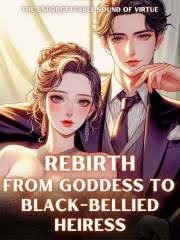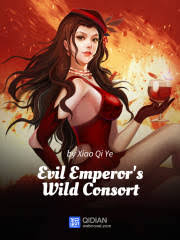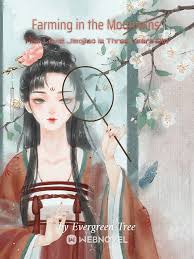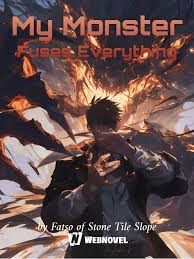The Story in 3 Sentences
Eighteen-year-old Su Xiaoyu, once a humble farm girl from Hua Mountain, undergoes a miraculous rebirth as Mu Qingli, the long-lost heiress of a wealthy family, only to discover her identity and status have been usurped by six younger sisters and her heart nearly harvested by her own father.
Embracing her new life with ruthless elegance, she reemerges as Lord Lili—a pendulum master, business tycoon, and medical prodigy—determined to dismantle every enemy who wronged her while carving an empire from blood and brilliance.
When she crosses paths with a famously aloof and allegedly gay nobleman who becomes inexplicably devoted to her, their collision of pride, power, and mutual refusal to marry ignites a romance both explosive and subversive.
Why It Stands Out
1. From Dirt to Dynasty in One Lifetime
Few rebirth tales commit so fully to the protagonist’s total societal domination across multiple domains—medicine, finance, occult arts, and underworld politics—all while maintaining a tone that blends vengeance with dark humor and unapologetic arrogance.
2. The Anti-Romance That Becomes Romance
The novel toys with expectations by framing the male lead as emotionally untouchable and publicly disinterested in women, only to unravel his stoicism through absurd devotion to a woman who openly rejects marriage, flipping gendered power dynamics on their head.
3. A Villainess Who Rewrites the Rules
Unlike passive victims of fate, Mu Qingli doesn’t just reclaim what was stolen—she weaponizes every skill she masters to ensure her enemies suffer poetic, irreversible ruin, making her vengeance feel less like revenge and more like cosmic justice.
Characters That Leave a Mark
There’s Qin Shaoyu – a figure whose presence in the narrative carries weight through strategic influence, though detailed English-language accounts of his role remain sparse beyond his inclusion among core supporting characters .
You’ll meet Yue Chen, who stands out as one of the few named allies or antagonists consistently referenced alongside the protagonist in character rosters, suggesting a pivotal role in either emotional or tactical arcs .
And Sikong Ni? They’re the one who appears in official character introductions as part of the central ensemble, hinting at significance in either the mystical or political layers of the story, though precise motivations remain elusive in accessible English sources .
The Flaws Fans Debate
The ending feels rushed and leaves major plot threads unresolved, including the fate of the system, the villain Baihuasheng, and the mysterious underground city, leading readers to suspect the author abandoned planned complexity for a hasty conclusion .
Several adult male characters express romantic interest in the protagonist despite her being only seventeen, raising discomfort among readers about age dynamics that the narrative never critically examines.
The repetitive structure of face-slapping and public humiliation scenes, while satisfying in isolation, eventually dilutes narrative tension through overuse, making later confrontations feel formulaic rather than impactful.
Must-Experience Arcs
Ch. 1–50: The Farm Girl’s Reckoning – Mu Qingli returns to the Mu family under her true identity, feigning meekness while quietly exposing the greed of her sisters and father, culminating in her first public act of defiance that signals her transformation into Lord Lili.
Ch. 300–350: Pendulum of Judgment – Armed with her mastery of feng shui and divination tools, she dismantles a rival clan’s spiritual defenses and economic empire in a single stroke, proving her influence extends beyond mere wealth into metaphysical control.
Ch. 950–1000: The Proposal That Shattered Dignity – After years of mutual resistance, the male lead kneels before her in a globally witnessed proposal, offering to take her surname and live beneath her authority, a moment both comedic and revolutionary that redefines power in their relationship.
Killer Quotes
“Meeting Buddha, I slay Buddha; encountering a god, I slay the god.”
“In this life, I will live unrestrainedly and arrogantly—I do as I please.”
“Challenge me if you dare.”
Cultural Impact
Readers widely meme the male lead’s fall from “I shall never marry” to “let me be your subject under your skirt,” turning his devotion into a viral symbol of romantic surrender in strong-female-lead fiction.
The term “Lord Lili” became shorthand in fan communities for a woman who dominates every sphere—business, mysticism, combat—without sacrificing elegance or wit.
Despite mixed critical reception, the novel sparked a micro-trend of “black-bellied heiress” protagonists in English-translated webnovels, emphasizing strategic cruelty paired with supernatural or intellectual prowess.
Final Verdict
Start Here If You Want:
A cathartic power fantasy where the wronged daughter becomes an untouchable sovereign across multiple elite domains.
A romance built on mutual stubbornness, flipped gender roles, and absurdly grand gestures that defy traditional courtship tropes.
Satisfying, over-the-top retribution against familial betrayal, delivered with theatrical flair and zero remorse.
Study If You Love:
The evolution of the “black-bellied” archetype in xianxia-inspired webnovels—calculating, morally gray, yet deeply justified heroines.
Narratives that merge modern business strategy with traditional Chinese metaphysical systems like feng shui and pulse diagnosis.
Explorations of autonomy in female-led stories where marriage is not a goal but a battleground of wills.
Avoid If You Prefer:
Tightly plotted conclusions—this novel’s finale leaves significant mysteries dangling with minimal resolution.
Age-appropriate romantic pairings—the story normalizes adult men pursuing a seventeen-year-old without narrative critique.
Subtlety in conflict—most confrontations escalate to public shaming or total annihilation, with little room for nuance or reconciliation.





